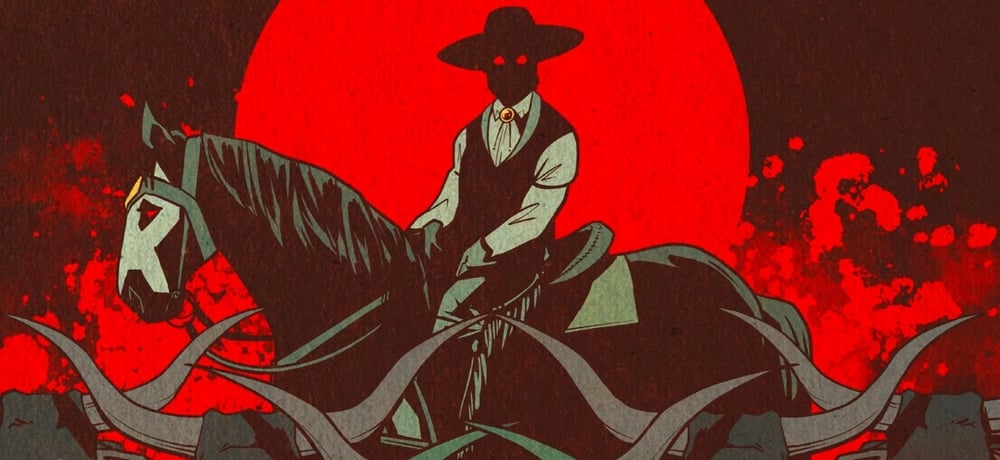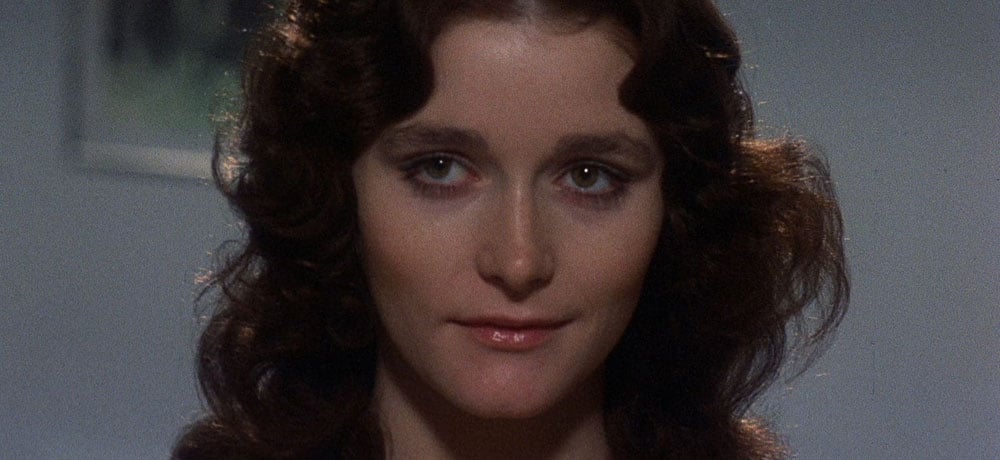






The style, temperament and humor of Brian De Palma were pretty much fully formed when he made his first foray into thrillers, Sisters (1973). His previous films were rambling, oddball comedies with trenchant social commentary (Greetings, Hi Mom!); with this one he was able to include all of that with the first of many tributes to his idol, Alfred Hitchcock. Sisters is the blueprint of so much of his future output.
After a screening in November of ’72 at the Filmex Film Festival, Sisters opened wide in North America in Spring of ’73; this AIP release received some good notices (among them Roger Ebert) and solid box office against a half a million budget. A good thriller never goes out of style; although De Palma has always had his detractors (starting with this one), it’s hard to deny this muscular and droll take on the genre.
We open with the game show “Peeping Toms”, as men are confronted with the basic moral dilemma – to look or not to look, set in different social situations. Two contestants, Phillip (Lisle Wilson – The Incredible Melting Man) and Danielle (Margot Kidder – Black Christmas) hit it off and go out to dinner. It’s going very well until they are disrupted by her creepy ex-husband Emil (William Finley – Phantom of the Paradise), who wishes to drive her home. She refuses, and takes Phillip back to her apartment for the night. It appears she isn’t alone, however; Phillip can hear her talking to someone in the other room. It turns out that her twin sister Dominique is staying with her to celebrate their birthday. Being the gentleman he is, Phillip heads out the next morning and picks up a birthday cake for the twins; when he returns he is greeted by Dominique, whose technique with a knife applies more to human butchery than cake cutting.
Meanwhile across the street in another apartment, local reporter Grace Collier (Jennifer Salt – Gargoyles) witnesses the murder through her window; she calls the police, but when they do investigate, they can find no evidence of wrongdoing. (This could have something to do with the fact that Emil has hidden the body inside the sofa bed.) Grace hires private detective Joseph Larch (Charles Durning – The Fury) to investigate, and he follows a moving truck from New York to Quebec – otherwise, no body, no crime. Tenacious as hell, Grace digs deep on the mystery of the Siamese twins, and finds an even more insidious truth beneath it all…
Sisters was certainly not ahead of its time; voyeurism has played a part in many thrillers, of particular note Michael Powell’s Peeping Tom and Hitchcock’s Rear Window and Psycho. Sisters doesn’t have so much to do with the act itself, but rather how one sees things through a prism of personal bias and worldview. Phillip, a successful black man, doesn’t appear to be of much concern to the police; people go missing all the time, there’s no sign of a body, etc. It bothers Grace though, who channels her righteous social outrage into action, even at her own peril. She knows what she saw, yet the police will not believe her; a timeworn trope to be sure, but it always stings because it’s always true. And while the casting of Wilson has no bearing on the role – his race has no context in the script – it gives the film extra gravitas with the indifference afforded by the police.
Which isn’t to say that Sisters is here to preach at you over social injustices; De Palma seems more interested in (and canny at) crafting a mystery that doesn’t take itself too seriously. Durning is on hand really just to offer comic relief and to deliver the perfect button to a film that revels in the absurd and mundane. The film isn’t as flashy or acrobatic as later De Palma efforts, although it is noticeably structured similarly to Dressed to Kill (1980), Body Double (’84), and Raising Cain (1992) – or rather they like it. There’s certainly nothing wrong with finding a template that works; thrillers need clockwork dependency to move, and Sisters definitely does.
Having famed Hitchcock composer Bernard Herrmann on board set De Palma up for even more comparisons, but he didn’t care - his love of film overrides any comparisons because that passion (and skill) shows in every frame. Is it homage? Certainly. But within that homage lays a sense of humor even sicker than Hitch’s not to mention a mentality a few shades darker than the Master was ever willing to go. Or at least show.
The cast is terrific. Salt has a terrific resolve as Grace, determined to find the truth when frankly no one else even cares; Durning is spry and funny; Finley exudes oily evil before he even speaks. Kidder fares the best though as the twins; one good and decent, the other homicidal, both victims of an uncaring and cold environment. Kidder infuses both with sympathy and kindness (not withstanding the birthday mishap, of course).
More than a few folks have dismissed De Palma as nothing more than an efficient craftsman, a mimic with a surface level point of view. Nonsense. De Palma shows us through motion, placement, and a kinetic vibe that sound and vision without a skilled conductor is just Sturm und Drang. The final shot of Sisters alone shows he knows how to work the wand.
Sisters is available on Blu-ray as part of the Criterion Collection.
Next: Drive-In Dust Offs: ROAD GAMES (1981)